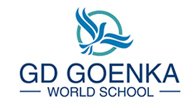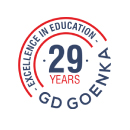Theory of Knowledge
The main focus of TOK is not on students acquiring new knowledge but on helping
students to reflect on, and put into perspective, what they already know.” —Theory
of knowledge guide
Do we as grown-ups take things at their face value? Do we question the information we constantly
read from the newspapers or other sources?
Mostly not!
During my academic years of schooling, knowledge was not available at the click of the button. I
remember, to gather some information for my History project, I had to cycle down to the city library
and make notes of the content required. However, times have changed and we have abundance of
information sitting at our homes. There are numerous advantages of it but how do we know what to
believe or what to consider as false information.
This brings us to an exclusive Subject – Theory of Knowledge. In addition to passing the subject
examinations, all IB Diploma students have to take up the IB Core which has Theory of knowledge as
one of the components. This program encourages students to think ‘out of the box’ and wear their
thinking caps.
What is Theory of Knowledge?
Theory of Knowledge is a course which gets students to think about the nature and the limitations of
knowledge focusing on the key question, How do we know? As DP teachers we are required to
make links to TOK, helping students to see the interconnectedness of their learning.
TOK is a course dedicated to exploring and reflecting on knowledge and the process of knowing.
Students reflect on the knowledge, beliefs and opinions that they have built up from their years of
academic studies and their lives outside the classroom.
TOK is a core element of the programme to which schools are required to devote at least 100 hours of
class time. Subject teachers support TOK by making links to TOK across the curriculum. But it also
means that the intention is that the skills and dispositions developed in TOK will help students in their
other DP subjects.
What is the aim of the TOK Course?
The aim of the course is to encourage students to reflect on the central question, “How do we know,
what we know” and to recognize the value of asking the question. Secondly, to expose students to
ambiguity, uncertainty and questions with multiple plausible answers. The process of knowing and of
finding agency as a knower is intriguing and personal. You will have many questions as you embark
upon this journey called TOK.
Significance of TOK
After having completed the TOK course, students are able to demonstrate thinking through the critical
examination of knowledge questions which are open ended and contestable. They are motivated to
identify and explore links between knowledge questions and the world around. It helps them to train
their minds not to accept things at the face value and think critically. Critical thinking involves asking
good questions, using language with care, and precision, supporting ideas with evidence arguing
coherently and making sound judgements. Critical thinking helps them to use examples and evidence
effectively to support a discussion within or outside the classroom.
Assessments
TOK students have two main assessments – TOK Exhibition and the TOK essay. TOK
exhibition is internally assessed and TOK essay externally assessed. The students are
encouraged to read the TOK guide thoroughly to understand the criteria and rubrics for these
mandatory assessments of the IB.
By Monika Ohri
History and TOK Faculty














